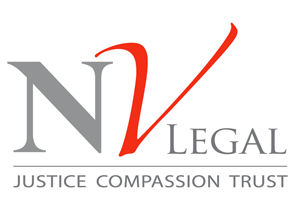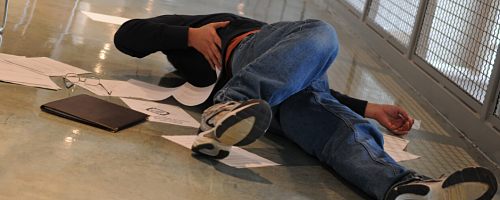10 things you must do after an accident at work
If you have been involved in an accident at work or need to take time off due to work-related illness it can be a worrying time.
There are laws in place to protect employees when accidents or illness happen. Your employer cannot dismiss you and they are not allowed to act in an unjust way towards you.
However, it is essential that you follow the correct procedures, to protect yourself, as you may need to claim compensation for personal injury from your employer further down the line. You have three years from the date of your accident or date of knowledge that the illness is work related to begin a claim. If you are under the age of 18 years, you have until your 21st birthday to claim.
We outline the top 10 things you must do if you have been injured or are ill through work:
- Administer first aid
Most employers have a dedicated first aid officer who has been trained in providing first aid in the workplace. If one is not available alert a nearby colleague to see if they can assist.
- Report your injuries
Immediately after the accident or illness, notify your line manager or the person you report to. They can arrange transport to a hospital if needed and arrange for a colleague to accompany you. Ask a colleague to help as they can follow the correct procedures if you are unable to.
- Document your injuries in an accident book
Even if your injuries are minor, they should still be reported or logged in an accident book. Make sure you see the entry confirming the details of the incident and ideally sign it and keep a copy.
If your employer has more than 10 employees, they are required by law to provide an accident book. If there is not one available record what happened in writing and email it afterwards to your line manager.
- Report to the Health & Safety Executive
Laws are used to protect employees and RIDDOR (Reporting of Injuries, Diseases and Dangerous Occurrences Regulations) is the law that requires employers and other people in charge of work premises, to report and keep records. CLICK HERE for the types of injury which must be reported to RIDDOR.
- Take photographs
If possible, take photos or video footage of the area where the accident happened, and images of any injuries. This can be valuable and can be used as evidence if you need to make a claim for personal injury compensation.
- Obtain witness details
Ask anyone who witnessed the accident for their contact details and a description of what they saw. Do this as soon as possible. Some people often do not make a claim if initially they believe they have suffered a minor injury, if it later transpires that the injury is more serious and then decide to claim those who witnessed the accident may no longer work there or be contactable.
- Medical evidence
Depending on the severity of the injury, you may need to see your GP or attend hospital. It is important that you explain the circumstances of the accident or illness so they are accurate and consistent. Any recorded details will form part of medical evidence if you make a claim for compensation. The experts instructed in the case will have access to your records and these will be disclosed to the other side and the court so it is imperative the details are correct.
- Record any expenses
Record any out of pocket expenses and keep documentation in support of any losses that you have incurred as a result of the accident. These could include travel receipts for medical appointments, medication, pay slips for instance. If you need someone to look after you, keep a record of what they do for you and how long it takes them, as you are able to claim for the reasonable care and assistance they provide to you as part of your claim. Keep a diary of your recovery and any appointments you attend.
- Financial losses
You may need time off from work to recover from the accident or illness leading to loss of earnings. Check your employment contract. You are likely to be entitled to sick pay. If your employer has a scheme in place you would be entitled to use it, otherwise Statutory Sick Pay (SSP) is available.
SSP may be considerably less than your current salary and as it is only paid for a limited amount of time, a claim for your loss of earnings as part of your personal injury compensation claim could go some way towards alleviating your financial loss. If liability is admitted, you may be able to secure an interim payment from the defendant to cover this loss. You may also be entitled to claim for Industrial Injuries Disablement benefit CLICK HERE to see if you are eligible.
- Contact a solicitor
A solicitor will work with you and advise on the evidence required to pursue a claim against your employer. Your solicitor will also liaise with the insurance company and arrange for you to be medically examined by an independent medical expert who will prepare a report for the court.
For legal advice on accidents or illness in the workplace contact NV Legal for a FREE consultation. Call 03330 112732 or visit www.nvlegal.co.uk
Possible causes of an accident or illness at work:
- Incorrect (or lack of) manual handling or other type of training
- Defective or dangerous equipment or machinery
- Slips, trips and falls
- Construction/building site accidents
- Lack of protective equipment or lack of training
- A failure to assess the risks of a certain task properly or at all
- An unsafe workplace
- Negligence of fellow employees
- Working at height
- Unsafe environments
- Factory sites/offices
- Repetitive strain injuries
- Respiratory illness
- Hearing loss
- Industrial diseases
- Workplace stress
USEFUL LINKS
https://www.hse.gov.uk/riddor/when-do-i-report.htm
https://www.hse.gov.uk/simple-health-safety/reporting-accidents-ill-health.htm


